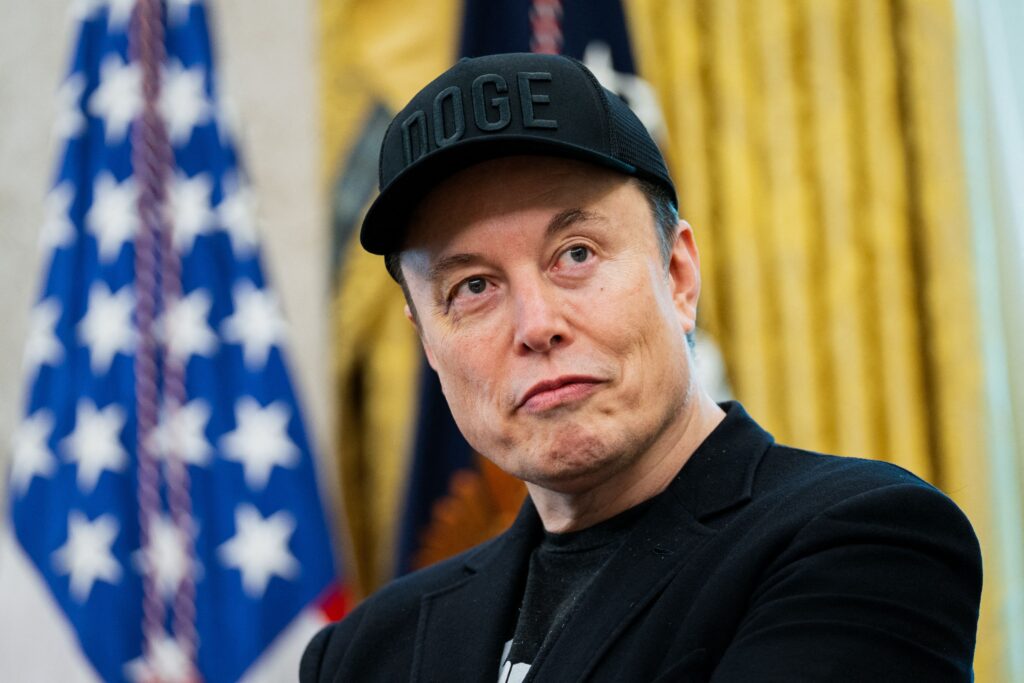Elon Musk vows to start a new political party after Trump feud. Here’s why that’s harder than it sounds.
In a notable rift between Elon Musk and President Donald Trump, the billionaire has reiterated his intention to establish a new political party, a challenging endeavor despite his immense wealth. This announcement comes amid tensions regarding Trump’s recent budget legislation, which Musk described as an “insane spending bill.”
Musk initially proposed the idea of a third party, tentatively named the “America Party,” earlier this month, signaling a likely split from his previous political alliance with the President. He once again emphasized this initiative last week as Congress prepared to send the One Big Beautiful Bill Act to Trump’s desk. Following Trump’s signing of the bill into law, Musk took to social media to declare the formation of the “America Party” after conducting a poll among his followers, which revealed strong support for a new political entity.
“By a factor of 2 to 1, you want a new political party and you shall have it!” Musk proclaimed. He expressed discontent with what he termed a single-party system in the U.S. and vowed to restore freedom through the establishment of his new party.
Trump quickly responded on his platform, Truth Social, deeming Musk’s party an idea that could lead to “total disruption and chaos.” He criticized Musk’s behavior over the previous weeks, suggesting the billionaire was losing touch with reality.
Challenges Ahead for the America Party
The road to launching a new political party is fraught with obstacles, even for someone of Musk’s financial stature. Brett Kappel, a seasoned election lawyer, highlighted the intricate web of state laws that govern the recognition of political parties. Each state has different regulations, which can present formidable barriers to emerging political entities.
To illustrate the complexity involved in establishing a new party, Kappel pointed out that California requires either 0.33% of the state’s voters to sign up as members or for the party to gather signatures from 1.1 million voters to gain ballot access. Moreover, maintaining recognition demands continual compliance with voter registration thresholds or achieving a notable percentage of the statewide vote.
To gain national recognition, the upstart party would also need to seek an advisory opinion from the Federal Election Commission (FEC), a process likely to encounter resistance from established political parties, complicating Musk’s ambitions further.
Financial Considerations
| Category | Details |
|---|---|
| Musk’s Net Worth | Over $350 billion |
| Political Spending in 2024 | $277 million, with $239 million through America PAC |
| Requirements in California | 0.33% voter registration or 1.1 million signatures |
Despite his financial resources, Musk has indicated a desire to scale back his political involvement. Previously, he managed substantial campaign contributions but has suggested a reduced focus on political spending moving forward. As Musk contemplates the creation of this new party, he faces the daunting realities of complex finance regulations, particularly regarding donations once national status is achieved.
Future Political Engagement
Even as he explores the possibility of founding a new party, there are indications that Musk may continue to influence Republican politics. He has signaled his support for GOP candidates who oppose legislation he criticizes, further complicating his relationship with Trump.
The feud between Musk and Trump centers mainly around the implications of the One Big Beautiful Bill, notably its cuts to electric vehicle incentives. Trump has expressed confusion over Musk’s discontent, suggesting that the billionaire previously endorsed the removal of such mandates.
This political drama illustrates the intricate interplay of high finance and political ambition in the U.S., particularly as Musk attempts to navigate an uncharted course through the fraught landscape of American political dynamics.

